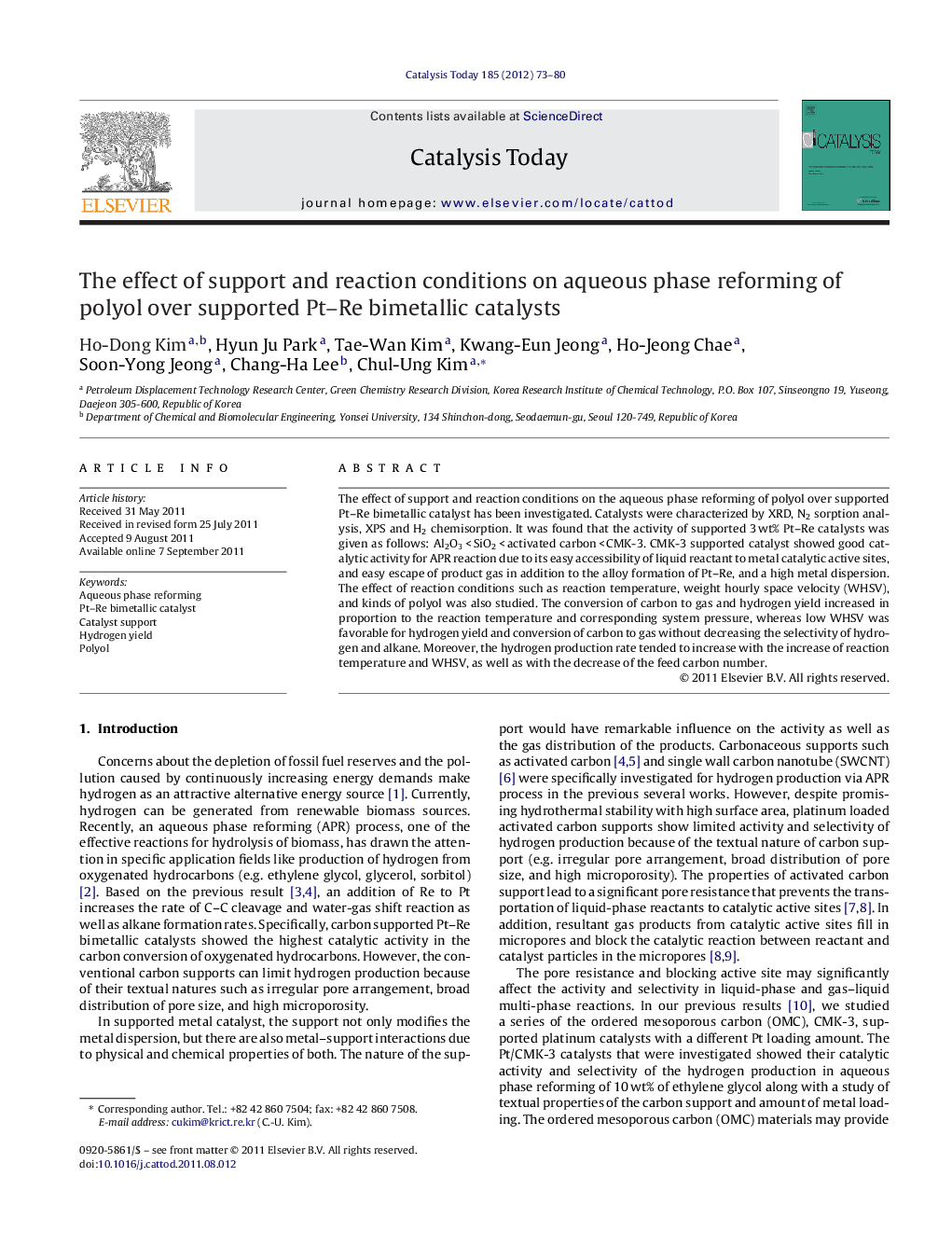| Article ID | Journal | Published Year | Pages | File Type |
|---|---|---|---|---|
| 55504 | Catalysis Today | 2012 | 8 Pages |
The effect of support and reaction conditions on the aqueous phase reforming of polyol over supported Pt–Re bimetallic catalyst has been investigated. Catalysts were characterized by XRD, N2 sorption analysis, XPS and H2 chemisorption. It was found that the activity of supported 3 wt% Pt–Re catalysts was given as follows: Al2O3 < SiO2 < activated carbon < CMK-3. CMK-3 supported catalyst showed good catalytic activity for APR reaction due to its easy accessibility of liquid reactant to metal catalytic active sites, and easy escape of product gas in addition to the alloy formation of Pt–Re, and a high metal dispersion. The effect of reaction conditions such as reaction temperature, weight hourly space velocity (WHSV), and kinds of polyol was also studied. The conversion of carbon to gas and hydrogen yield increased in proportion to the reaction temperature and corresponding system pressure, whereas low WHSV was favorable for hydrogen yield and conversion of carbon to gas without decreasing the selectivity of hydrogen and alkane. Moreover, the hydrogen production rate tended to increase with the increase of reaction temperature and WHSV, as well as with the decrease of the feed carbon number.
Graphical abstractFigure optionsDownload full-size imageDownload high-quality image (142 K)Download as PowerPoint slideHighlights► CMK-3 supported catalyst showed good catalytic activity for APR reaction: CMK-3 > activated carbon > SiO2 > Al2O3. ► Pt–Re/CMK-3 catalyst showed the best catalytic performance for hydrogen production and carbon conversion. ► Reaction conditions such as reaction temperature, WHSV, the kinds of polyol affected the catalytic activity in APR reaction.
